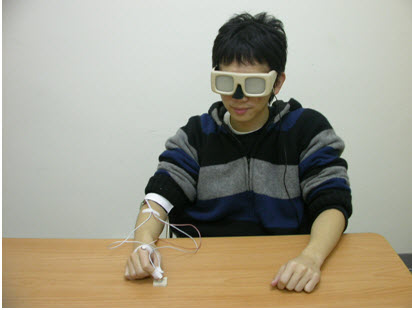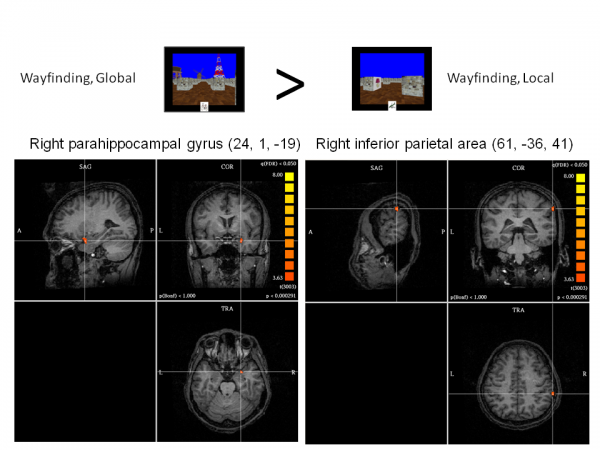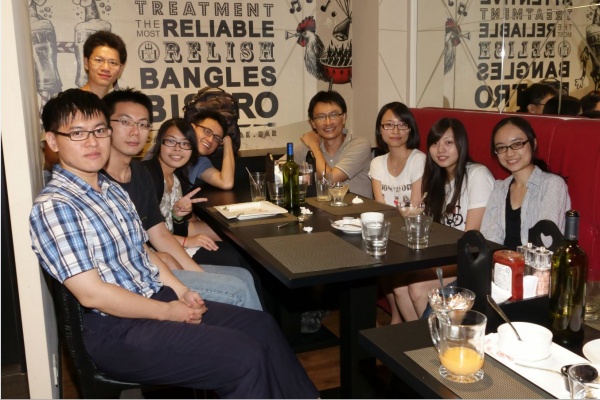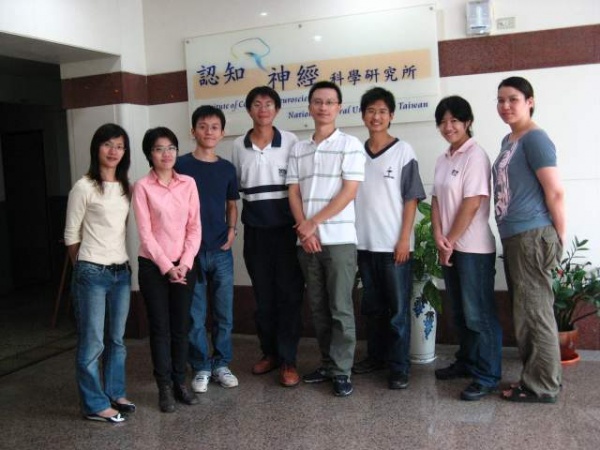Action & Cognition Laboratory
News
| 2022-06 | Test | 2021-05 | Hsin-Ping defended his master thesis successffully!! Congratulations! | 2019-11 | Maggie and Hsin-Ping (team acl.2019) together won the first place in the poster competition of NCU Institutional Research. Wonderful job!! |
| 2019-07 | Condrowati defended her master thesis successfully! Congratulations! | ||||
| 2019-06 | Prof. Chang got awarded a 4-year MOST grant to study the MEG brain dynamics of sequential motor learning. | ||||
| 2019-02 | Nicki Lee defended her master thesis successfully! Congratulations! | ||||
| 2017-01 | Prof. Chang got awarded a 3-year MOST grant to study impacts of daily stress level on implicit and explicit motor learning. | ||||
| 2017-01 | Maggie defended her master thesis successfully! Congratulations! | ||||
| 2016-10 | Zai-Fu Yao got awarded the 2016 Professor Su Hsiang-Yu Psychological Thesis Award (Master Category A) by the Taiwanese Psychological Association. Congratulations!! | ||||
| 2016-08 | Prof. Chang got awarded a 3-year MOST grant to study cognitive ageing and inhibitory mechanisms. | ||||
| 2016-06 | Hsiang-Yu received the Government Scholarship to Study Abroad from Ministry of Education. | ||||
| 2016-06 | Maggie received the award to attend international conference (OHBM) from the Ministry of Education. | ||||
| 2016-05 | Zai-Fu defended his master thesis successfully! Congratulations! |
About ACL@NCU
| Founded in 2007, the Action and Cognition Laboratory (ACL) focuses on exploring the characteristics of human action control and the underlying brain mechanisms. Ongoing research topics in ACL include: |
| 1. Life span changes in motor control and higher cognitive functions. |
| 2. Influence of cognitive and physical training on brain/behavioral plasticity. |
| 3. Hypnotic modulations on motor control and numerical cognition. |
| 4. Applications of feature extraction and machine learning in brain imaging and electrophysiology. |
Facilities

|
| To observe and record human movements in 3D space, a 6 camera PhaseSpace motion capture system is available in ACL, which could digitize effector positions online for analyzing kinematics. To study hand-object interactions, ACL is also equipped with a set of Plato Visual Occlusion Spectacles, which are able to change rapidly between transparent and light scattering status for optimally control timing of the real visual object. |

|
| As for examining the brain mechanism, ACL has been cooperating with Integrated Brain Research Unit from Taipei Veterans General Hospital, Imaging Center of the National Yang-Ming University, and the Taiwan Mind and Brain Imaging Center of the National Cheng-Chi University for fMRI techniques to explore brain areas of spatial navigation, central executive functions, and motor learning processes. We have also been collaborating with Brain Research Centre from National Chiao Tung University for combining virtual reality with analysis of EEG time-frequency information. |

